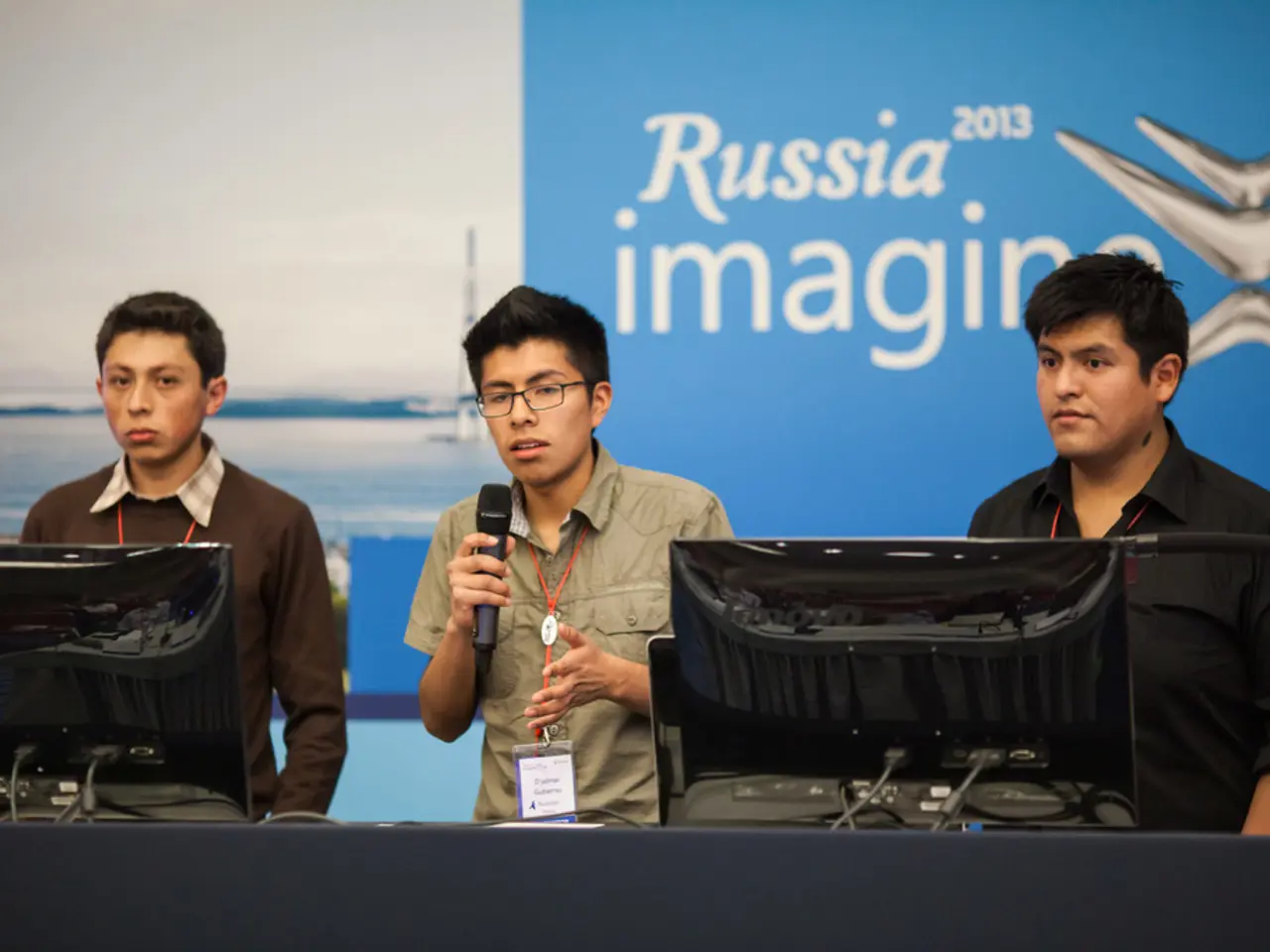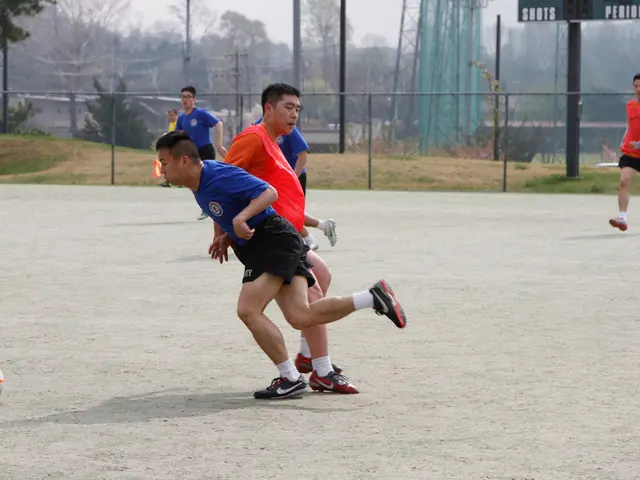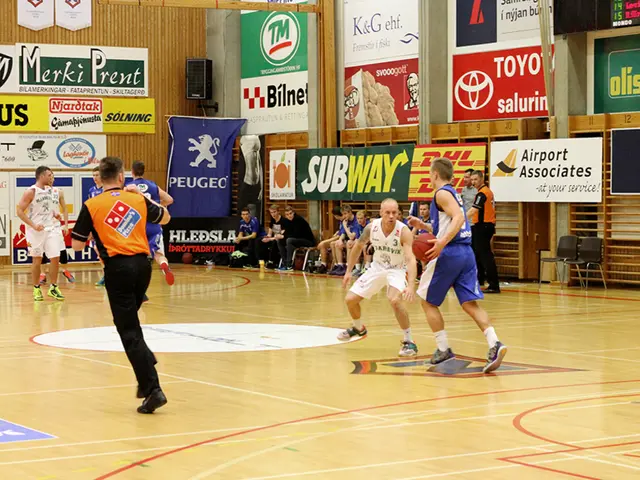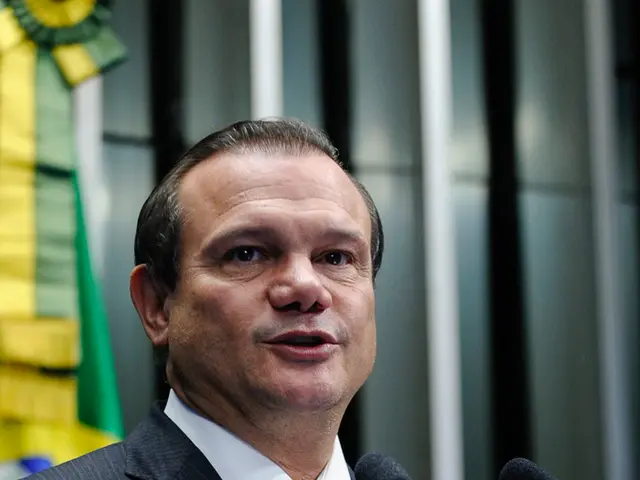A Discussion Arises Regarding an Immediate Encounter between Putin and Zelensky
The upcoming meeting between Russian President Vladimir Putin and Ukrainian President Volodymyr Zelensky, scheduled within two weeks according to US President Donald Trump, remains uncertain. This potential encounter, if it materializes, would be a significant development in the ongoing conflict in Ukraine.
The main obstacles to a direct meeting between the two leaders in resolving the Ukraine conflict are primarily a lack of mutual diplomatic willpower, unresolved security guarantees, and strategic distrust.
Diplomatic willpower
Zelensky and Putin have met only once before 2022, and there has been no direct contact since the full-scale invasion began. While Zelensky expressed readiness to meet Putin, he conditions the meeting on Ukraine’s allies providing security guarantees to prevent future Russian attacks. The Kremlin is ambiguous, stating only that it is “considering” raising the level of talks but offering no firm commitment or clarity on Putin agreeing to a meeting [1].
Security guarantees and preconditions
Zelensky demands security guarantees for Ukraine, reflecting Kyiv's insistence that any talks should secure Ukraine’s sovereignty and protection against further aggression. Russia has yet to clarify its position on these guarantees, creating an impasse [1].
Mutual distrust and political strategy
Putin has rejected offers to meet unless significant progress is made beforehand, indicating that the Kremlin sees direct talks as contingent on favorable conditions. Western nations and Putin’s advisers acknowledge that Putin is reluctant to meet Zelensky, and European leaders publicly express hope that Putin will be the one to reject a meeting first to avoid conceding any diplomatic advantage [3]. Russian officials accuse the West of blocking negotiations and criticize Zelensky for demanding immediate meetings "at all costs" [2].
Current conflict dynamics
The ongoing hostilities, including recent military advances by Russia and Ukrainian counteractions, along with incidents like drone strikes on Russian territory, persistently worsen the climate for dialogue [2].
In addition to these factors, Ukraine is keeping the Russian fleet at bay in the Black Sea. Moscow expects that Putin will only meet with Zelensky or another representative from Kiev if Ukraine surrenders. The Kremlin leader, Vladimir Putin, sees his troops advancing in Eastern Ukraine.
Despite these challenges, some believe that Russian propaganda would have a hard time selling a U-turn to the audience if Putin were to meet with Zelensky. Ukrainian political scientist Oryisa Lutsevich of the British think tank Chatham House suggested as much [4].
It is important to note that Putin and Zelensky have met once before in 2019 in Paris, but the meeting did not result in any concessions from Putin. Zelensky, a successful comedian and TV producer before entering politics in 2019, has repeatedly accused Putin of terrorism and called him an "idiot" at times [5].
As the international community watches with bated breath, the path to a Putin-Zelensky meeting remains fraught with obstacles. The ongoing war-related tensions, deep-rooted distrust, unresolved security preconditions by Ukraine, and unclear commitment from Russia continue to stall peace efforts despite external pressures and proposals for talks [1][2][3].
Read also:
- United States tariffs pose a threat to India, necessitating the recruitment of adept negotiators or strategists, similar to those who had influenced Trump's decisions.
- Weekly happenings in the German Federal Parliament (Bundestag)
- Southwest region's most popular posts, accompanied by an inquiry:
- Discussion between Putin and Trump in Alaska could potentially overshadow Ukraine's concerns








